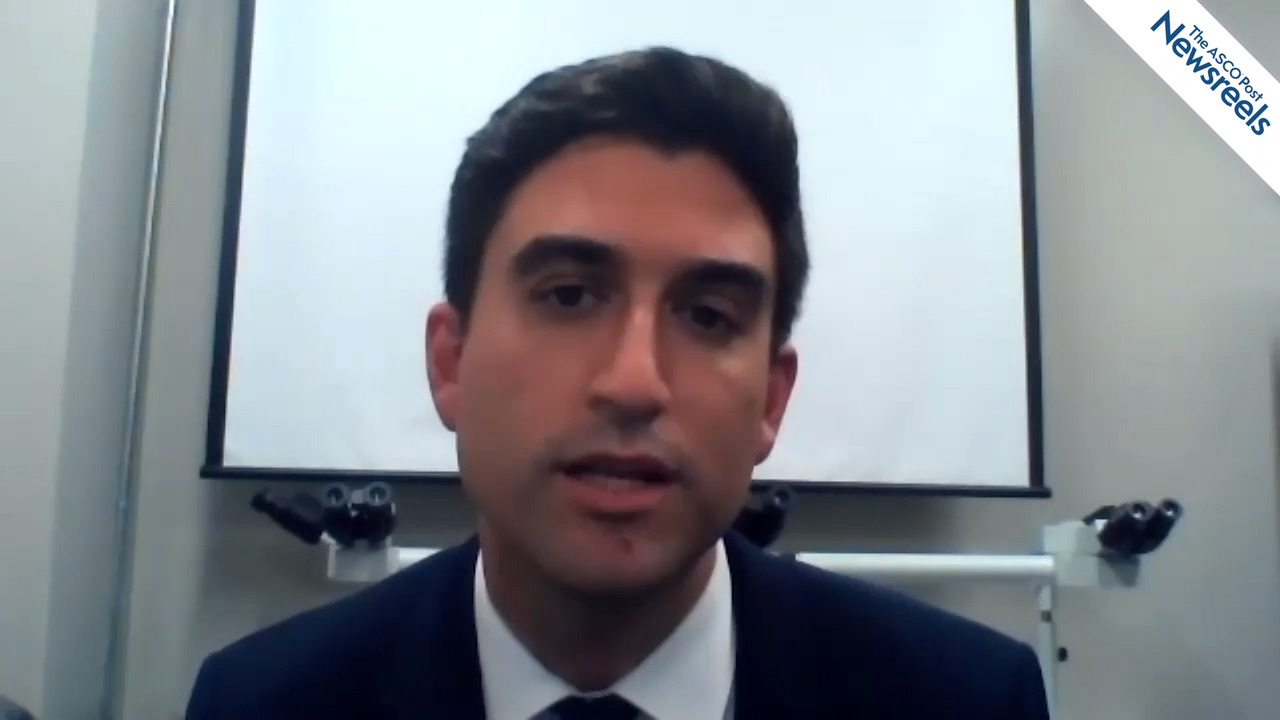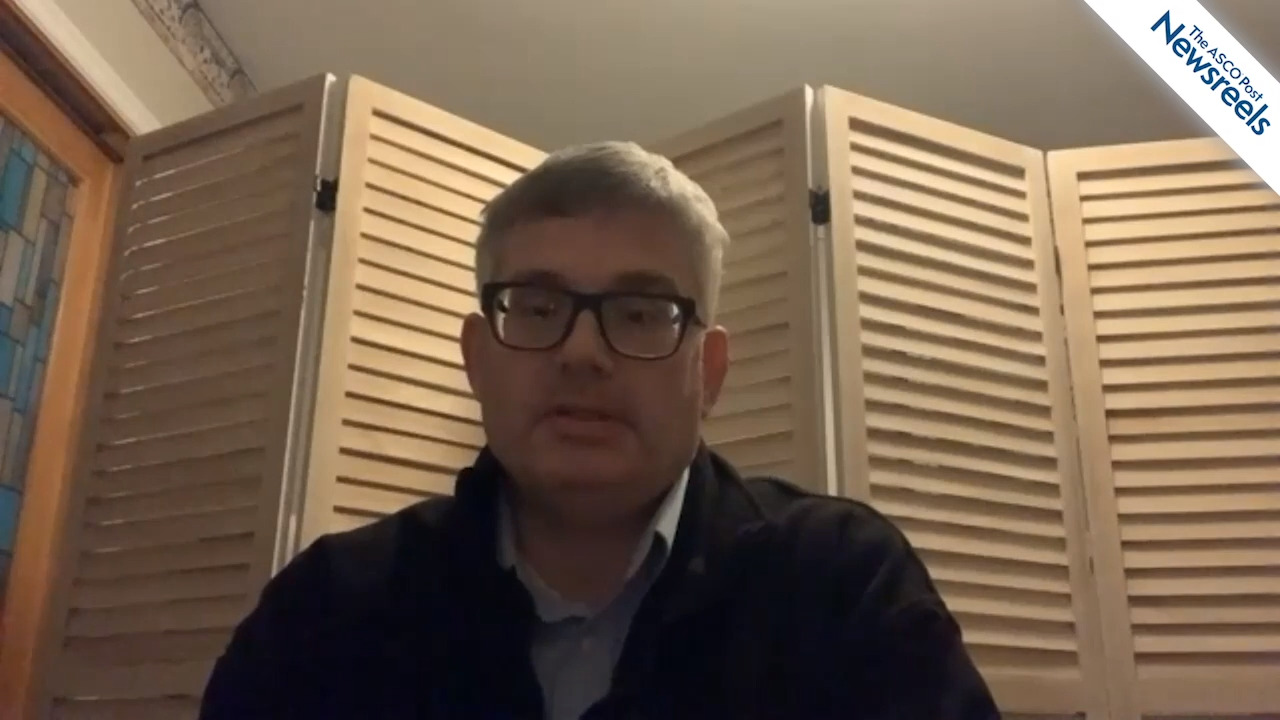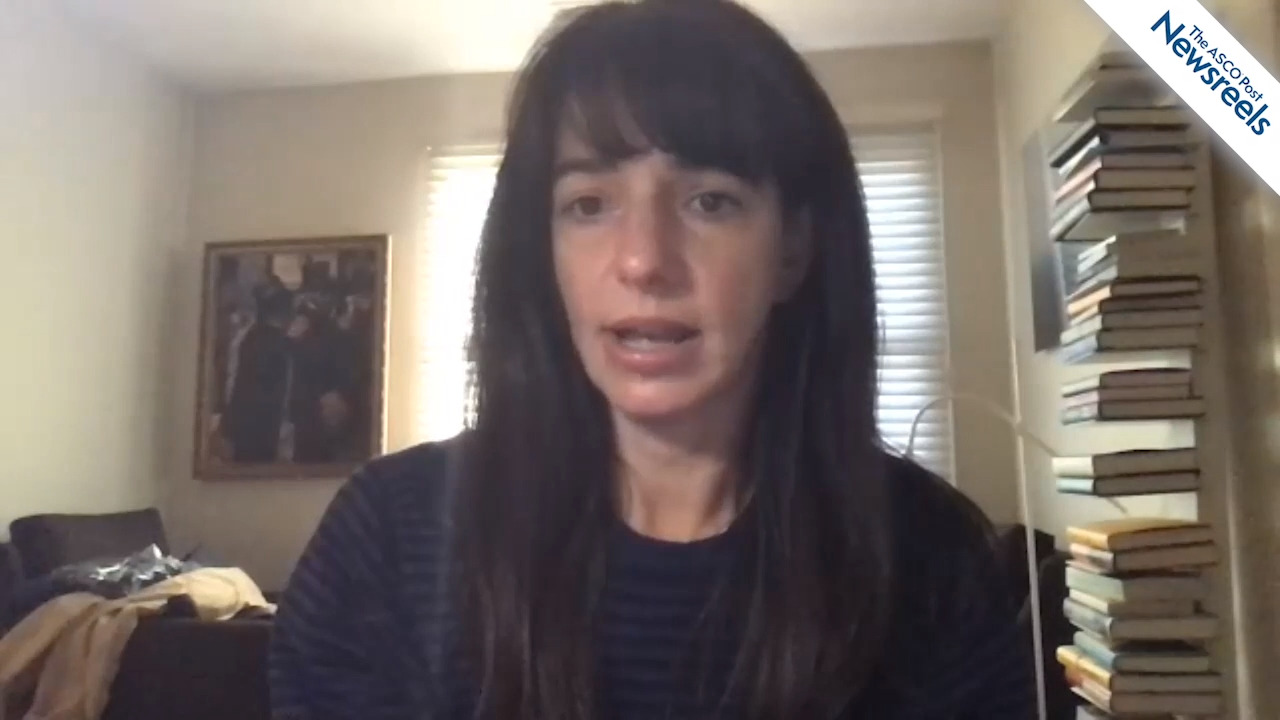Corey Cutler, MD, MPH, on MDS: Evaluating Treatments in Older Patients With Advanced Disease
2020 ASH Annual Meeting & Exposition
Corey Cutler, MD, MPH, of Dana-Farber Cancer Institute, discusses results from a multicenter trial that compared reduced-intensity allogeneic hematopoietic cell transplantation to hypomethylating therapy or best supportive care in patients aged 50 to 75 with advanced myelodysplastic syndromes (Abstract 75).
The ASCO Post Staff
Jyoti Nangalia, MBBChir, of Wellcome Sanger Institute and the University of Cambridge, discusses how her team used large-scale whole-genome sequencing to precisely time the origins of a blood cancer and measure how it grew. The information could provide opportunities for early diagnosis and intervention (Abstract LBA-1).
The ASCO Post Staff
Curtis Lachowiez, MD, of The University of Texas MD Anderson Cancer Center, discusses an interim analysis of a phase Ib/II study showing that venetoclax plus chemotherapy represents an effective regimen, particularly in patients with newly diagnosed and relapsed or refractory acute myeloid leukemia. The regimen appears to be an effective bridge to hematopoietic stem cell transplantation (Abstract 332).
The ASCO Post Staff
David T. Teachey, MD, of the University of Pennsylvania and Children’s Hospital of Philadelphia, discusses data showing that cranial radiation might be eliminated in most children with T-cell acute lymphoblastic leukemia and that bortezomib may improve survival in children with T-cell lymphoblastic lymphoma (Abstract 266).
The ASCO Post Staff
Tycel J. Phillips, MD, of the University of Michigan Rogel Cancer Center, discusses phase II data from the CITADEL-204 study, showing that patients with relapsed or refractory marginal zone lymphoma who were not previously treated with a Bruton’s tyrosine kinase inhibitor achieved rapid and durable responses with single-agent parsaclisib. Comparable results were also observed in patients with nodal, extranodal, or splenic disease (Abstract 338).
The ASCO Post Staff
Caron A. Jacobson, MD, of the Dana-Farber Cancer Institute, discusses results from the ZUMA-9 C2 study, an ongoing trial that is exploring axicabtagene ciloleucel in patients with relapsed or refractory large B-cell lymphoma (Abstract 2100).





